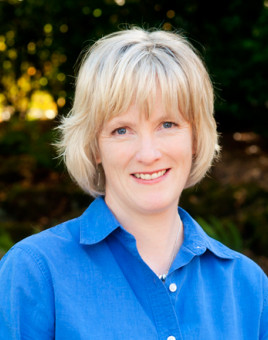
Daena J. Goldsmith
Professor of Rhetoric & Media Studies
Professor Goldsmith’s teaching and research focuses on how we enact identities and relationships through what we say and how we say it. She studie
Academic Credentials
BS Lewis & Clark College; MA., PhD University of Washington
Teaching
- RHMS 260 Empirical Research Methods
- RHMS 270 Interpersonal Media
- RHMS 303 Discourse Analysis
- RHMS 320 Health Narratives
- RHMS 332 Rhetoric of Gender in Relationships
- RHMS 431 Feminist Discourse Analysis
- HEAL 345 Narrative Medicine Practicum
Research
Professor Goldsmith’s research has examined how couples and families communicate as they support one another and make sense of illness or disability. For example: How can you encourage a partner who has cardiac disease to exercise or eat a healthful diet without sounding like a nag? How do couples talk about fears related to cancer recurrence? Under what conditions is social support from friends and family helpful in coping with illness? Her current project, Polyphonic Resistance: Blogging Motherhood and Autism examines the individual and cultural significance of blogs by mothers of autistic children. Additional information is available at daenagoldsmith.com.
Professional Experience
Professor Goldsmith is currently serving as Associate Dean for Faculty Development. She is also a member of the board for the Northwest Narrative Medicine Collaborative, a nonprofit organization that provides training and support for the practice of narrative medicine. Professor Goldsmith’s C.V. is available at daenagoldsmith.com.
Rhetoric and Media Studies is located in John R. Howard Hall on the Undergraduate Campus.
MSC: 35
email sasberry@lclark.edu
voice 503-768-7616
fax 503-768-7620
Chair Kundai Chirindo
Rhetoric and Media Studies
Lewis & Clark
615 S. Palatine Hill Road MSC 35
Portland OR 97219